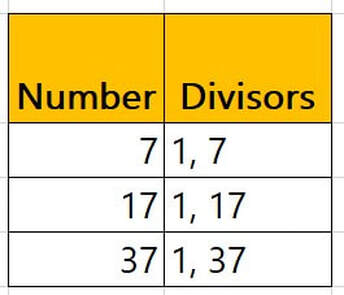Is 7 a Prime Number?
Understanding prime numbers: Is 7 a prime number? Discover the properties and significance of the number 7 in prime number theory.
Introduction
Prime numbers have captivated mathematicians for centuries, and one such number that piques curiosity is 7. In this article, we will investigate whether 7 qualifies as a prime number. By exploring the definition of prime numbers, examining the criteria for primality, providing examples, and delving into the historical significance, we aim to shed light on the status of 7 within the realm of prime numbers.
Understanding Prime Numbers
Prime numbers are integers greater than 1 that possess only two distinct positive divisors: 1 and the number itself. They cannot be evenly divided by any other positive integer. Some well-known prime numbers include 2, 3, 5, 7, and so on.
The Criteria for Primality
To ascertain whether a number is prime, it must fulfill two key criteria: it should possess precisely two positive divisors, and it should not be divisible by any other positive integer.
Analyzing 7's Primality
7 is an intriguing number when it comes to primality. It is an odd number, and to determine its primality, we need to investigate whether it has exactly two positive divisors.
Divisors of 7
When we consider the divisors of 7, we find that it has two positive divisors: 1 and 7. There are no other whole numbers between 1 and 7 that divide it evenly. Thus, 7 satisfies the primary criterion for primality.
Prime Factorization and 7
Prime factorization involves expressing a composite number as a product of its prime factors. However, since 7 is already a prime number, it cannot be further factored into smaller prime numbers. It remains unchanged in its prime factorization.
Historical Significance
Throughout history, mathematicians have recognized 7 as a prime number. Its unique properties and significance extend beyond mere divisibility. The number 7 holds cultural and symbolic importance in various contexts, ranging from mathematics and science to religion and superstitions.
Examples
To reinforce our understanding of 7 as a prime number, let's examine a few examples related to its primality:
In the table above, we can observe that 7 meets the essential criteria of prime numbers by having exactly two positive divisors. Comparing it with other prime numbers like 17 and 37 reinforces the consistent pattern of prime numbers having only two divisors.
Summary
To sum up, 7 is undoubtedly a prime number. It satisfies the crucial criteria of possessing precisely two positive divisors and being indivisible by any other positive integer. Throughout history, 7 has been recognized as a prime number and holds cultural significance in various domains. Understanding the significance of 7 as a prime number contributes to our knowledge of number theory and enhances our understanding of the fascinating world of mathematics.
